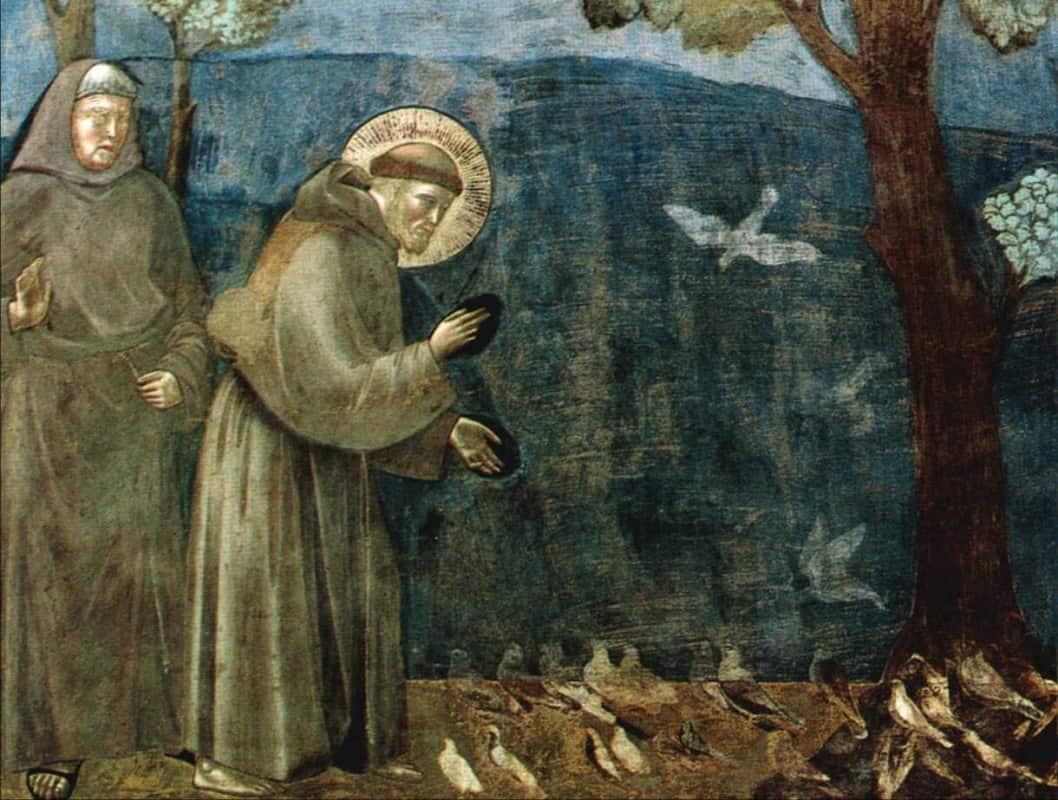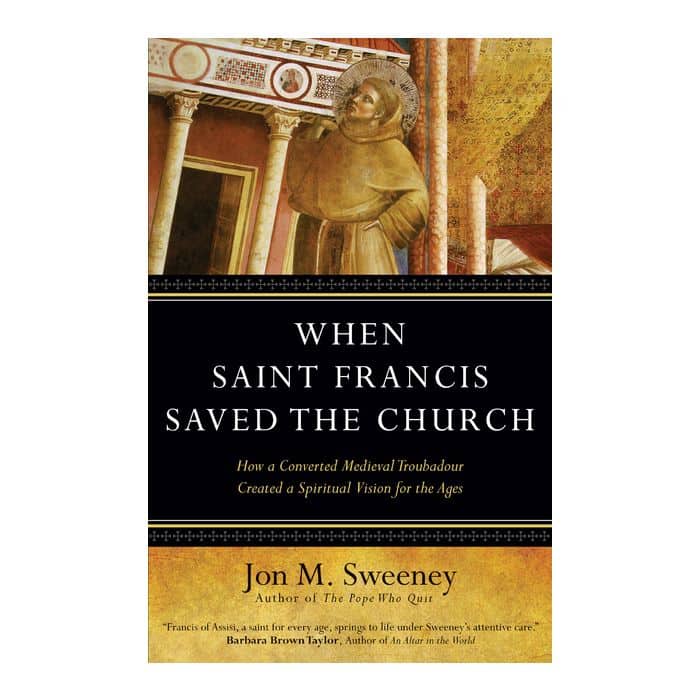You have to slow down if you want to be caring. St. Francis was careful with human beings, but his practice, of course, went way beyond people. His reputation as the “environmental saint” is well deserved, based upon nearly one hundred stories from his life. But it is also a source of misunderstanding. This is one of those areas where we need to forget what we thought we knew about him if we want to see him clearly.
The most common misconception about Francis is that he loved nature. He’s the patron saint of animals, of environmentalists, even of the Cub Scouts. We’ve all seen his statue in a hundred different flower gardens. There he is, looking on benevolently, sometimes with arms extended out from his sides, encouraging the birds to come and nest upon them. If you are a nature lover, or a bird lover, or a lover of flowers, you may have been drawn to that Francis, and for good reason. There are great stories about him in which he shows remarkable concern for and tends to those creatures and parts of Creation. There’s no question that Francis was connected to the physical world in ways that saints who lived before him would have found strange, probably shocking, and maybe even heretical—and ways that make him quite different from most of us, too. Francis crossed lines time and again, including the well-established line separating the human world from the animal one. His life was about breaking down those barriers.
But Francis was not a lover of nature. To explain or understand his care and affection for creatures in such general terms is to misunderstand how he was able to do what he did, and why his true charism (divine gift) was and still is so unusual and so desperately needed. One of my favorite insights from Chesterton’s little book on St. Francis is that Francis did not love in the abstract.* Francis did not love nature because he never loved anything or anyone in the abstract.
To love nature is akin to loving everyone and everything in the universe, and we know that is impossible for a mere human. Francis’ gift of caring was specific, which is what is most unusual about him, more than his being drawn to birds. If we generalize a particular love of this lover who excelled at loving particularly, much is lost.
Similarly, Francis did not in fact love “people.” This wouldn’t have made much sense to him at all. He loved that person, he loved this person, he showed his love for Clare, for Leo, for Matteo—the person in front of him at that moment. Francis’ loving was particular in the sense that it involved motion and application. It’s nearly impossible to imagine him sitting in a chair and reflecting on what love was once like with someone, or pining away for love lost, or showing love in any way that doesn’t include feet, hands, arms, action. Francis’ connection to the created world was always specific and always present tense. He was one of those rare people—like Henry David Thoreau, centuries later—who seems to have been able to walk in a forest or a field that he’d walked in hundreds of times before, and to experience it in the present. He could see with fresh eyes each time.

 This essay is excerpted from Jon M. Sweeney’s new book, When Saint Francis Saved the Church (Ave Maria Press), which debunks popular myths about St. Francis and explores the connection between his teachings and Pope Francis, who has wide appeal throughout the world today. Sweeney is an independent scholar and one of religion’s most respected writers. He is the author of more than 20 books, including his bestselling The Pope Who Quit and The Age of the Spirit, coauthored with Phyllis Tickle. Sweeney is the editor in chief and publisher of Paraclete Press in Massachusetts.
This essay is excerpted from Jon M. Sweeney’s new book, When Saint Francis Saved the Church (Ave Maria Press), which debunks popular myths about St. Francis and explores the connection between his teachings and Pope Francis, who has wide appeal throughout the world today. Sweeney is an independent scholar and one of religion’s most respected writers. He is the author of more than 20 books, including his bestselling The Pope Who Quit and The Age of the Spirit, coauthored with Phyllis Tickle. Sweeney is the editor in chief and publisher of Paraclete Press in Massachusetts.
* John Berger, Selected Essays, ed. Geoff Dyer (New York: Vintage International, 2003), 261.


